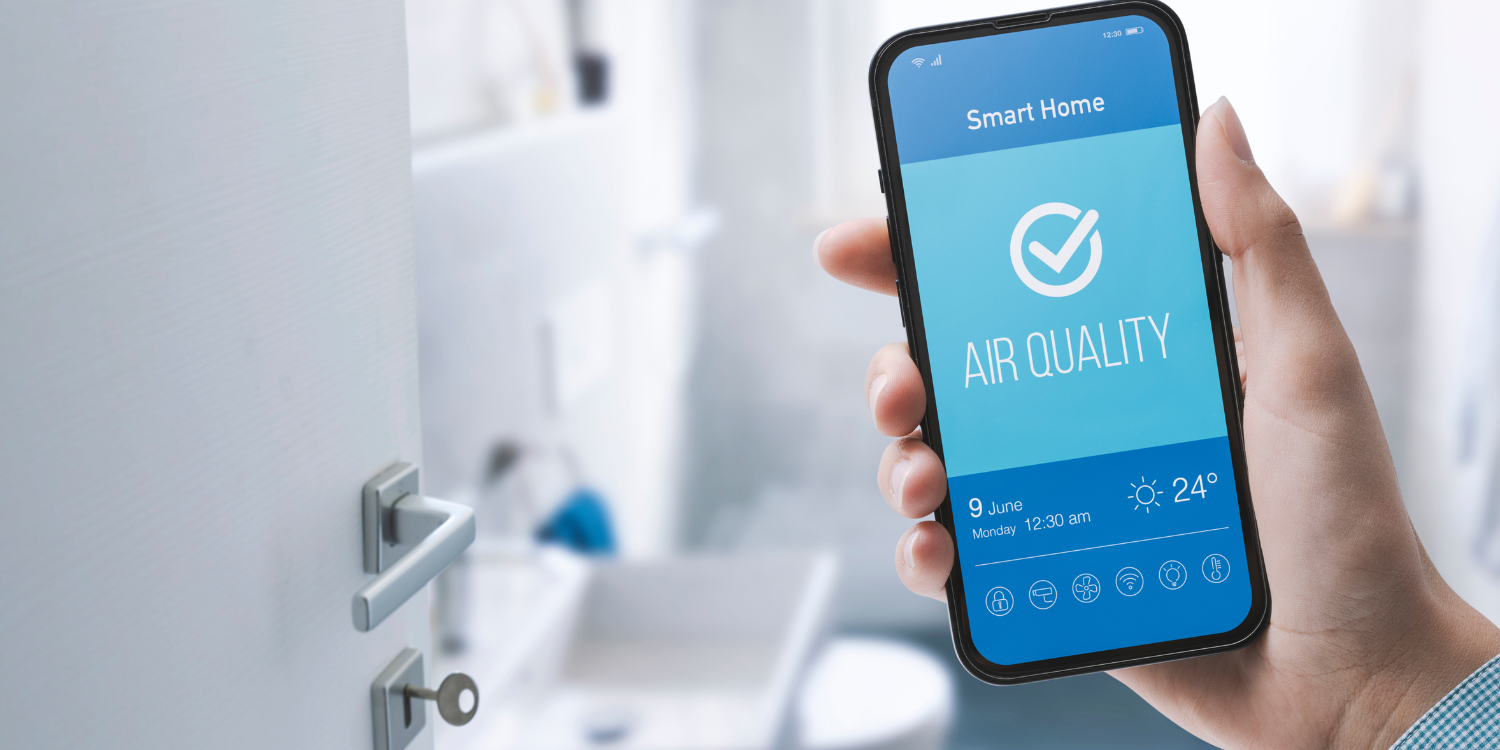
Did you know that the air you’re surrounded by can be just as key a contributor to your wellness as things like diet and exercise? Air quality significantly impacts our health, environment, and quality of life. Understanding its facets is crucial for taking steps towards healthier living spaces and communities. This post answers the most common questions about air quality, its effects, and improvement strategies.
What is air quality and why is it important?
Air quality refers to the cleanliness of the air we breathe and is measured by the concentration of pollutants present. Good air quality means the air is clear with minimal pollutants, while poor air quality is hazy and harmful. Air quality is crucial because it affects our health, the environment, and can even influence climate change. Improved air quality has been linked to fewer health issues and a better quality of life.
How is air quality measured?
Air Quality Index (AQI) is a tool used to communicate how polluted the outside air currently is or how polluted it is forecast to become. Pollutants tracked by the AQI include ground-level ozone, particulate matter (PM2.5/PM10), carbon monoxide, sulfur dioxide, and nitrogen dioxide.
For instance, PM2.5 refers to particulate matter that is 2.5 micrometers in diameter or smaller, which can penetrate deep into the lungs and even enter the bloodstream.
How is indoor air quality measured?
Indoor air quality (IAQ) currently doesn’t have its own index, but there are certain standards that must be met to be considered healthy. These standards aim to quantify indoor air pollution levels, with higher scores indicating poorer air quality.
Scoring systems evaluate homes based on contaminant levels, odours, and moisture, incorporating health-based assessments and factors that mitigate IAQ risks.
How does indoor air quality affect health?
Indoor air quality (IAQ) can significantly affect health, leading to respiratory diseases, heart conditions, and even cancer. Poor indoor air, contaminated by pollutants such as carbon monoxide, volatile organic compounds (VOCs), and particulate matter, can exacerbate asthma, cause headaches, and increase the risk of chronic diseases.
What are common indoor air pollutants?
Common indoor air pollutants include particulate matter (dust, dirt, soot, smoke), carbon monoxide, radon, ozone, nitrogen dioxide, and sulfur dioxide. These pollutants can originate from household combustion devices, vehicles, industrial emissions, and even natural sources like the ground or wildfires.
How Does Weather Impact Indoor Air Quality?
Surprisingly, the weather outside can significantly impact the air indoors. Changes in temperature and humidity can affect air pollutant levels inside homes and buildings and even influence occupant behaviour when it comes to opening windows or using appliances.
For instance, high humidity levels can encourage mold growth, while low humidity can exacerbate respiratory conditions and allergies. Additionally, windy days can increase the infiltration of outdoor pollutants, such as pollen and dust, into the indoor environment.
Understanding the relationship between weather and indoor air quality is essential for implementing strategies to maintain healthy indoor air, regardless of the season.
How can I test the air quality in my home?
Air quality in homes can be tested using air quality monitors that measure levels of specific pollutants like particulate matter, VOCs, carbon monoxide, and radon. Professional air quality assessments are also an option for a comprehensive evaluation.
A carbon monoxide alarm and various IAQs measured are sufficient for most pollutants but you must work with a professional to test the presence of radon gas (a well-known carcinogen).
Want to test the quality of your indoor air? Reach out to us today!
What are the best practices for improving indoor air quality?
Improving indoor air quality involves reducing pollutant sources, enhancing ventilation, and using air purifiers to improve air quality. Opt for HEPA filters to ensure you’re capturing the maximum number of particulates. Regular cleaning, avoiding smoking indoors, using cooking vents, and keeping humidity levels in check are also effective strategies.

Can plants improve indoor air quality?
Yes, certain plants can improve indoor air quality by absorbing pollutants and producing more oxygen. They act as natural air purifiers, though their effectiveness is limited and should complement other air quality improvement measures.
How do HVAC systems influence indoor air quality?
HVAC systems can affect indoor air quality in many ways. Furnaces equipped with advanced filtration technologies capture and reduce airborne particles, while central air purifiers work throughout your home to remove contaminants from the air. Regular maintenance ensures these systems function optimally, providing a healthier indoor environment. Upgrading to modern, efficient HVAC equipment and adding air purification solutions are effective steps toward better air quality in your home or business.
That said, if you do not maintain these appliances, they can have a negative impact on your indoor air quality.
How often should air quality assessments be conducted?
Air quality assessments should ideally be conducted annually to ensure the indoor environment remains healthy. However, more frequent assessments may be necessary if changes in the home or workplace occur, or if health issues arise.
What is the latest tech in air quality improvement?
The latest innovations include smart air quality monitors, advanced HVAC filters, air purifying technologies that use UV light and ionization, and sustainable building materials that reduce off-gassing of VOCs.
In addition to these advancements, the integration of smart HVAC systems is revolutionizing indoor air management. These systems optimize air quality in real-time, adjusting to environmental changes and indoor conditions, ensuring a consistently healthy living space with minimal effort.
Take Control of Your Air Quality with Guelph ClimateCare
Understanding the critical role air quality plays in our health and environment is the first step towards creating safer, cleaner indoor spaces. Whether you’re concerned about the air in your home or workplace, taking action isn’t optional—it’s mandatory.
Contact Guelph ClimateCare today to learn more about our air quality services and how we can help you breathe easier.








